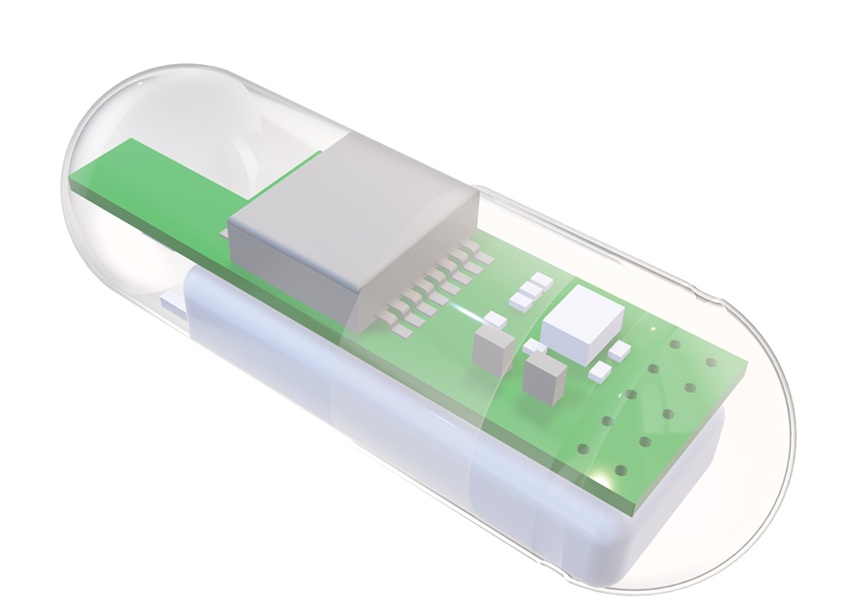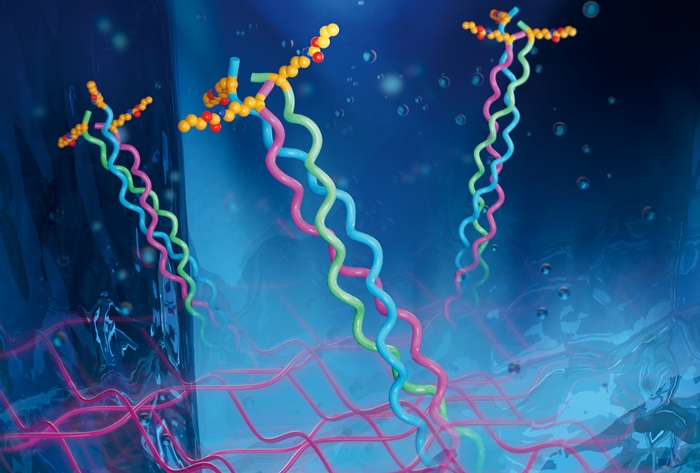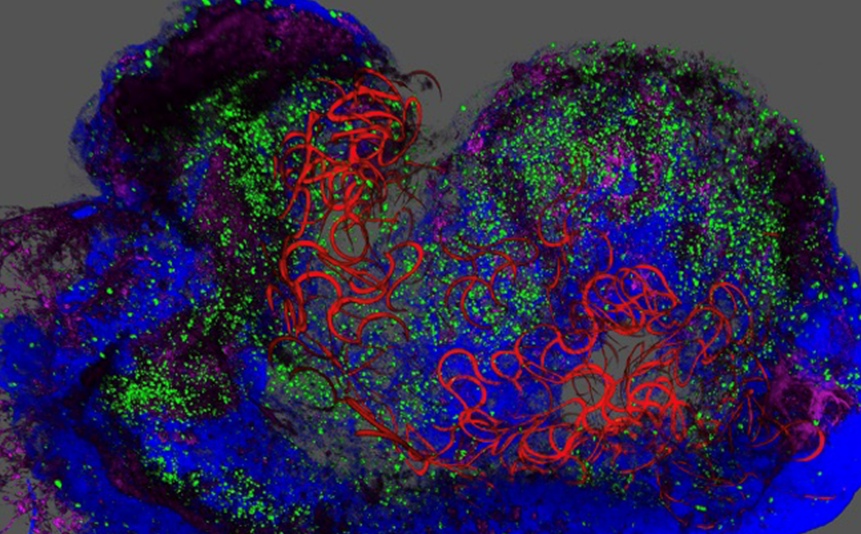HPV Vaccine Appears Safe in Early Pregnancy
|
By HospiMedica International staff writers Posted on 14 Apr 2017 |
A new study suggests that vaccination against human papillomavirus (HPV) during pregnancy does not increase the risk of maternal or fetal complications.
Researchers at the Danish Statens Serum Institut conducted a retrospective study of all women in Denmark who had a pregnancy that ended between October 1, 2006, and November 30, 2013. Using nationwide registers, the researchers linked data on quadrivalent HPV vaccination, adverse pregnancy outcomes, and potential confounders. Vaccinated women were matched on a 1:4 ratio with women who were not. Study outcomes included a range of gestational and newborn factors.
The results revealed 65 birth defects in vaccine-exposed pregnancies, compared to 220 in unexposed pregnancies; 20 spontaneous abortions with vaccine exposure versus 131 without; 116 preterm births versus 407; 76 cases of low birth weight versus 277; 171 cases of small size for gestational age versus 783; and two stillbirths versus four. Upon analysis, exposure to HPV vaccine was not associated with significantly higher risks for major birth defect, spontaneous abortion, preterm birth, low birth weight, small size for gestational age, or stillbirth. The study was published on March 30, 2017, in the New England Journal of Medicine (NEJM).
“Our results are consistent with other evidence that does not indicate that the vaccination of pregnant women with inactivated virus, bacterial, or toxoid vaccines generally confers a higher risk of adverse pregnancy outcomes than no such vaccination,” concluded lead author Nikolai Scheller, MD, and colleagues. “Our results also confirm and considerably expand on results from previous studies of the quadrivalent HPV vaccine.”
Introduced in 2006, the quadrivalent HPV vaccine covers the four viral strains most closely associated with gynecologic cancer (HPV-6, 11, 16, and 18). HPV types 6 and 11 also cause genital warts. As of 2014, 58 countries include HPV in their routine vaccinations for all girls around the ages of 9-13, and some countries vaccinate boys as well; the vaccines provide protection for at least eight years. Denmark also vaccinates women up to 26 years of age, and as a result some women are inadvertently exposed to HPV vaccination during early pregnancy.
Researchers at the Danish Statens Serum Institut conducted a retrospective study of all women in Denmark who had a pregnancy that ended between October 1, 2006, and November 30, 2013. Using nationwide registers, the researchers linked data on quadrivalent HPV vaccination, adverse pregnancy outcomes, and potential confounders. Vaccinated women were matched on a 1:4 ratio with women who were not. Study outcomes included a range of gestational and newborn factors.
The results revealed 65 birth defects in vaccine-exposed pregnancies, compared to 220 in unexposed pregnancies; 20 spontaneous abortions with vaccine exposure versus 131 without; 116 preterm births versus 407; 76 cases of low birth weight versus 277; 171 cases of small size for gestational age versus 783; and two stillbirths versus four. Upon analysis, exposure to HPV vaccine was not associated with significantly higher risks for major birth defect, spontaneous abortion, preterm birth, low birth weight, small size for gestational age, or stillbirth. The study was published on March 30, 2017, in the New England Journal of Medicine (NEJM).
“Our results are consistent with other evidence that does not indicate that the vaccination of pregnant women with inactivated virus, bacterial, or toxoid vaccines generally confers a higher risk of adverse pregnancy outcomes than no such vaccination,” concluded lead author Nikolai Scheller, MD, and colleagues. “Our results also confirm and considerably expand on results from previous studies of the quadrivalent HPV vaccine.”
Introduced in 2006, the quadrivalent HPV vaccine covers the four viral strains most closely associated with gynecologic cancer (HPV-6, 11, 16, and 18). HPV types 6 and 11 also cause genital warts. As of 2014, 58 countries include HPV in their routine vaccinations for all girls around the ages of 9-13, and some countries vaccinate boys as well; the vaccines provide protection for at least eight years. Denmark also vaccinates women up to 26 years of age, and as a result some women are inadvertently exposed to HPV vaccination during early pregnancy.
Latest Patient Care News
- Revolutionary Automatic IV-Line Flushing Device to Enhance Infusion Care
- VR Training Tool Combats Contamination of Portable Medical Equipment
- Portable Biosensor Platform to Reduce Hospital-Acquired Infections
- First-Of-Its-Kind Portable Germicidal Light Technology Disinfects High-Touch Clinical Surfaces in Seconds
- Surgical Capacity Optimization Solution Helps Hospitals Boost OR Utilization

- Game-Changing Innovation in Surgical Instrument Sterilization Significantly Improves OR Throughput
- Next Gen ICU Bed to Help Address Complex Critical Care Needs
- Groundbreaking AI-Powered UV-C Disinfection Technology Redefines Infection Control Landscape
- Clean Hospitals Can Reduce Antibiotic Resistance, Save Lives
- Smart Hospital Beds Improve Accuracy of Medical Diagnosis
- New Fast Endoscope Drying System Improves Productivity and Traceability
- World’s First Automated Endoscope Cleaner Fights Antimicrobial Resistance
- Portable High-Capacity Digital Stretcher Scales Provide Precision Weighing for Patients in ER
- Portable Clinical Scale with Remote Indicator Allows for Flexible Patient Weighing Use
- Innovative and Highly Customizable Medical Carts Offer Unlimited Configuration Possibilities
- Biomolecular Wound Healing Film Adheres to Sensitive Tissue and Releases Active Ingredients
Channels
Artificial Intelligence
view channelCritical Care
view channel
3D-Printed Swallowable Robot Could Perform Gastrointestinal Procedures
Advances in medical technology are enabling the development of tiny robots capable of moving safely inside the human body. These systems hold promise for simplifying complex procedures, including delicate... Read more
Next-Gen Hydrogel Could Transform Soft Tissue and Organ Repair
Repairing soft tissue, closing surgical incisions, and sealing wounds require materials that are strong, adaptable, and safe inside the body. Many existing tissue adhesives rely on synthetic polymers that... Read moreSurgical Techniques
view channelAI-Based OCT Image Analysis Identifies High-Risk Plaques in Coronary Arteries
Lipid-rich plaques inside coronary arteries are strongly associated with heart attacks and other major cardiac events. While optical coherence tomography (OCT) provides detailed images of vessel structure... Read moreNeural Device Regrows Surrounding Skull After Brain Implantation
Placing electronic implants on the brain typically requires removing a portion of the skull, creating challenges for long-term access and safe closure. Current methods often involve temporarily replacing the skull or securing metal plates, which can lead to complications such as skin erosion and additional surgeries.... Read moreHealth IT
view channel
EMR-Based Tool Predicts Graft Failure After Kidney Transplant
Kidney transplantation offers patients with end-stage kidney disease longer survival and better quality of life than dialysis, yet graft failure remains a major challenge. Although a successful transplant... Read more
Printable Molecule-Selective Nanoparticles Enable Mass Production of Wearable Biosensors
The future of medicine is likely to focus on the personalization of healthcare—understanding exactly what an individual requires and delivering the appropriate combination of nutrients, metabolites, and... Read moreBusiness
view channel
Medtronic to Acquire Coronary Artery Medtech Company CathWorks
Medtronic plc (Galway, Ireland) has announced that it will exercise its option to acquire CathWorks (Kfar Saba, Israel), a privately held medical device company, which aims to transform how coronary artery... Read more
Medtronic and Mindray Expand Strategic Partnership to Ambulatory Surgery Centers in the U.S.
Mindray North America and Medtronic have expanded their strategic partnership to bring integrated patient monitoring solutions to ambulatory surgery centers across the United States. The collaboration... Read more
FDA Clearance Expands Robotic Options for Minimally Invasive Heart Surgery
Cardiovascular disease remains the world’s leading cause of death, with nearly 18 million fatalities each year, and more than two million patients undergo open-heart surgery annually, most involving sternotomy.... Read more


















